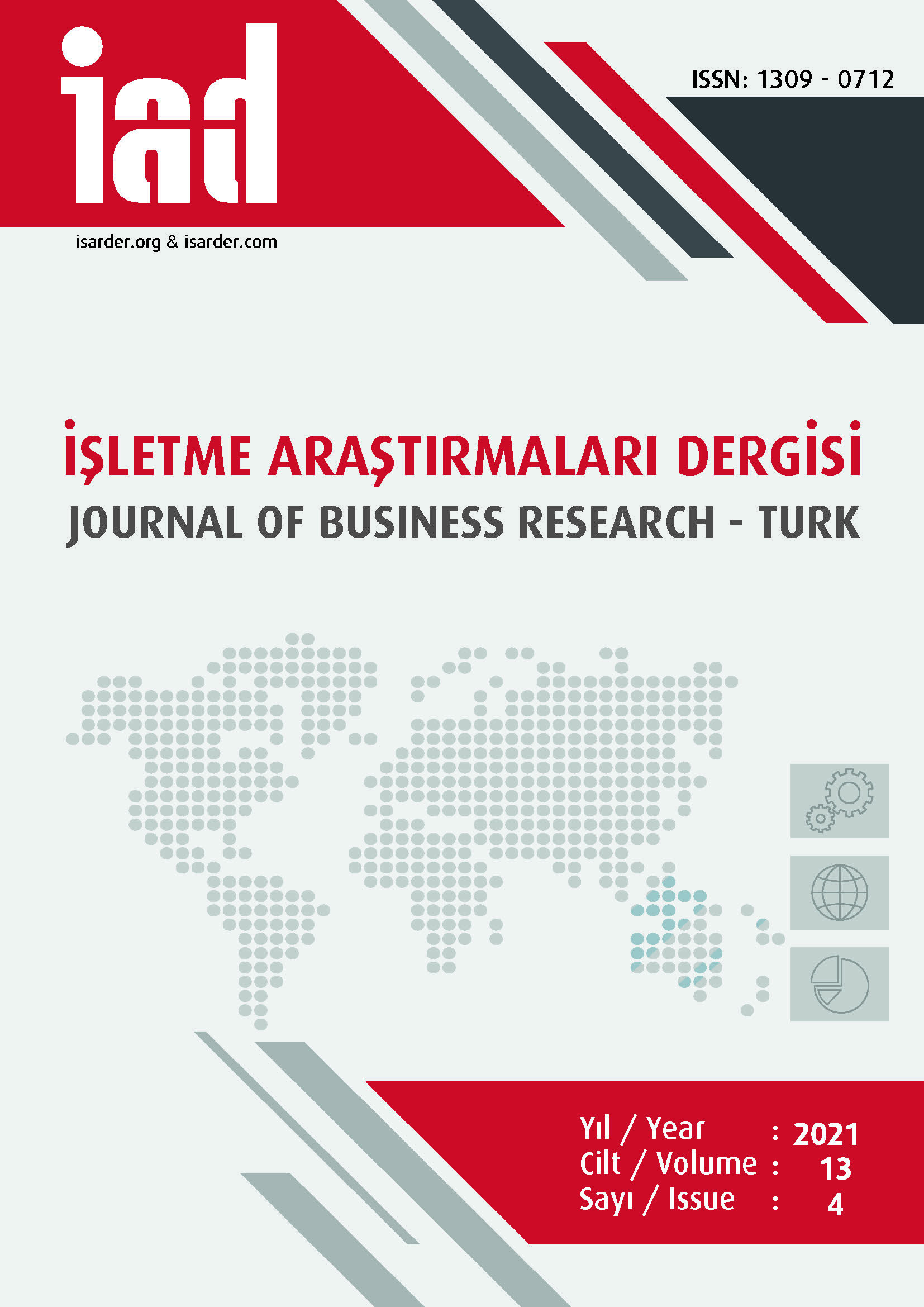(The Effect of Training and Career Perception on Employee Engagement)
DOI:
https://doi.org/10.20491/isarder.2021.1306Keywords:
Human Resources, Career Practices, Training Practices, Work EngagementAbstract
Purpose - The purpose of this research is to investigate the effect of training and career on employee engagement. For this purpose, the main hypotheses of the research were determined that training and career practices at workplaces positively affect employee engagement. Design/methodology/approach - The research data were collected from private and public banking employees operating in Istanbul using an easy-to-use survey method over the Internet. The analyzes were realized with the data of 362 participants. Scales developed by Bartlett (1999) for training practices, Yıldız (2017) for career practices, and Schaufeli, Bakker, and Salanova (2006) were used to measure employee engagement. Reliability, frequency, normality test, factor analysis and multiple regression analyses were performed with the data obtained. Findings - The goodness of fit values of the models created as a result of the analyzes were excellent, and all 18 hypotheses tested together with the sub-dimensions of the variables were accepted. Discussion - Research is original because it was realized on the banking sector in Turkey. With the analysis made, it was determined that the perceptions of training and career had a significant effect on employee engagement. In addition, while the perception of employee engagement changes according to age, seniority and status, which are demographic variables, it is understood that education level does not change this perception. The results obtained can be generalized for the banking sector in terms of sample size, and are guiding for practitioners.
Downloads
Published
How to Cite
Issue
Section
License

This work is licensed under a Creative Commons Attribution-NoDerivatives 4.0 International License.





